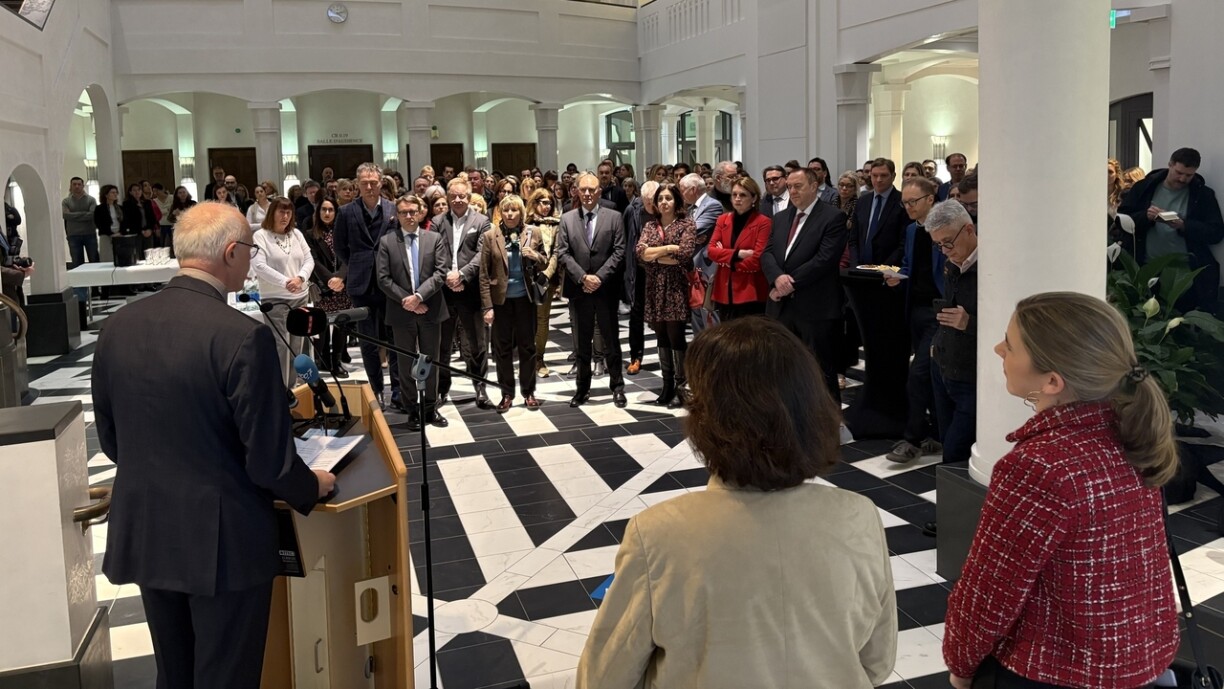
The judiciary faces a dual crisis: even if there were enough judges, there would still be a shortage of courtrooms – and vice versa. This summary was delivered by attorney general Martine Solovieff during her New Year’s reception speech on Wednesday. Set to hand over her role to John Petry on 1 February, Solovieff responded to concerns raised by Luxembourg City Mayor Lydie Polfer on RTL, who highlighted the lack of follow-up on cases, something which contributes to a general sense of impunity.
Solovieff expanded on the issue and explained that due to staff shortages, only major cases can be prioritised, leaving less serious ones unaddressed. She also urged prioritising major urban crimes.
To illustrate, Solovieff shared some firgures: 32 magistrate positions created last year remain unfilled, alongside 16 leaves of absence. This leaves the judiciary operating with 17% fewer judges than needed, with only 307 currently active. Meanwhile, 2,880 prosecution cases are stalled due to insufficient resources. Investigators, too, are overwhelmed, handling hundreds of cases in their respective domains.
Solovieff criticised the lack of appeal in judicial careers and the slow pace of hiring, calling these “political decisions”. Despite these challenges, she emphasised that the judiciary remains responsive in urgent cases, though investigations move slowly, and delays persist. Reducing trial delays and postponements remains a priority.
Justice Minister Elisabeth Margue appears attuned to the issues and confirmed that a working group is drafting amendments to the Criminal Procedure Code based on recommendations from the Financial Action Task Force of the Council of Europe (FATF). Proposed changes include expanding ‘mini-investigations’ and introducing a ‘settlement procedure,’ reforms expected to be implemented in the short or medium term.
While judicial reforms are welcomed, staffing and space shortages remain a major issue. Margue confirmed that plans for a new justice campus are in progress. In the meantime, the Ministry of Finance has identified potential buildings to house the judiciary within two to three years, pending budget approval. Several services have already relocated.
On staffing, Solovieff called for swift action from the Chamber to pass the reform of the law on attachés – that is on future judges. She suggested that recognising relevant experience in administration or the private sector could help fill judge vacancies and reduce the need for judges to frequently step in for different cases.
Read also: Luxembourg City mayor urges government action on police and judicial staffing shortages